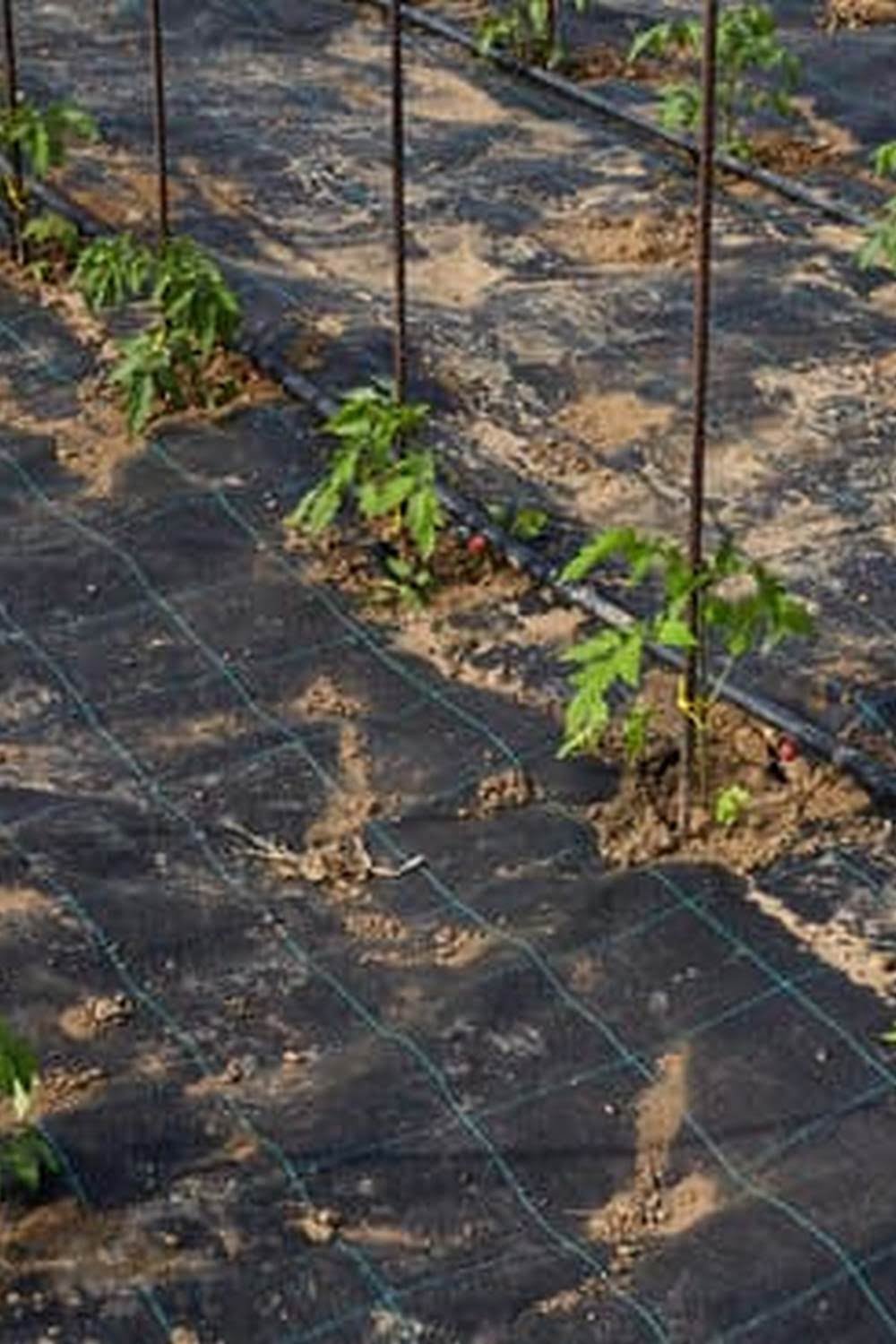Introduction
Having a raised vegetable garden is an increasingly popular way to produce your own fresh produce. Aside from the pride of growing your own food, there are numerous advantages that come along with having one. For starters, by raising the soil and allowing for better drainage, you can maintain healthy soil without worrying about it becoming water-logged or over-saturated. In addition, you are able to keep rabbits, rats, and other critters out of your garden with ease if it is contained in a raised bed or planter box. Lastly, the soil in a raised bed warms up faster than the traditional ground soil during springtime which enables earlier planting opportunities as well as an extended harvest season in the fall.
When creating these garden beds it is extremely important to fill them with quality dirt in order to get started right. It should be rich in organic matter like compost or manure as well as plenty of nutrients such as nitrogen and phosphorous. The best option for this type of gardening would be buying pre-packaged organic gardening soil from gardening shops online or at local stores such as Home Depot or Lowe’s. They offer specially blended potting soils specifically tailored for vegetables which will provide excellent drainage and nutrition needed for a successful growing season. If opting for using regular garden soil then you can also include more compost or fertilizer to enhance its nutrient content even further for optimal results
Types of Dirt for Raised Vegetable Gardens
When deciding on which type of dirt to use for your raised vegetable garden, it is important to take into account both the ones that have the optimal nutrient composition and the ones that are easy to source. While there are many varieties of dirt available, several stand out in terms of quality and usability. This article provides an in-depth analysis of the different types of dirt for a raised vegetable garden, so you can make an informed decision.
One popular option is topsoil. Topsoil typically comes from composted plant matter and small amounts of minerals, providing a medium which is ideal for planting and growing plants. It also retains large quantities of water, giving your soil the necessary moisture supply while still allowing space for air circulation. Furthermore, its loose composition makes it easier to work with when constructing a raised bed.
Compost is also another great choice for raised vegetable gardens; as it slowly breaks down, it releases nutrients such as nitrogen, phosphorus and potassium back into the soil, improving its quality over time. Additionally, other beneficial microorganisms present in compost help improve soil structure and fertility levels too. It can often be sourced free through local authorities or community initiatives too.
Another good type of dirt is peat moss; however depending on where you live this may be hard to obtain due to depletion concerns in some areas. If peat moss can be sourced locally then it’s a great choice since it has excellent water retention properties and works like a sponge immediately soaking up any excess rainwater; this helps maintain soil moisture between watering sessions making plant growth significantly more efficient.
Furthermore using vermiculite or perlite helps create an overall looser and airier composition within your soil mixture making water less prone to pooling which greatly reduces rotting caused by too much moisture being held by tight soils that don’t allow oxygen exchange. In addition both perlite and vermiculite help retain nutrients which can be released at different times throughout the gardening season providing extra nutrition as plants need it most during growth spurts or periods of higher stress levels due to inclement weather conditions or other factors.
Benefits of Using Composted Soil for Raised Vegetable Gardens
Using composted soil in a raised vegetable garden is one of the best ways to create a healthy and productive garden. Composting breaks down organic matter into a nutrient-rich material that plants can use for growth. By adding this compost to your raised vegetable garden, you’ll be creating an ideal growing environment that will help your vegetables thrive.
The benefits of using composted soil in your raised vegetable garden include improved water retention, increased fertility, better tilth (the ability of the soil to break apart lustily), and fewer weed issues. Compost has a high concentration of nutrients that can quickly replenish tired soils and help give your vegetables the nourishment they need for maximum growth. Compost also helps fix nutrient deficiencies and ensures that essential minerals are readily available for plant uptake. As it breakdowns over time, compost increases soil organic matter, thus improving its texture and structure which in turn increases drainage, aeration and water having capacity of the soil – all important factors for establishing a healthy raised bed vegetable garden. Moreover, compost also helps reduce compaction due to its ability to loosen up clay-based soils with its fibrous network structure.
Additionally, compost offers environmental benefits like reducing erosion by helping the soil remain together more securely and improving local water quality by filtering out pollutants as it breaks down and moves through the soil profile – which is especially valuable if you’re raising tomatoes near bodies of water! And finally, because it contains living organisms – from bacteria to fungi – organic wastes become sources of energy or food for these beneficial creatures which can form a healthy eco-system in your backyard garden.
Benefits of Using Peat Moss for Raised Vegetable Gardens
Using peat moss for raised vegetable gardens is a popular soil amendment choice when it comes to maximizing nutrient retention in your garden. Peat moss is composed of decomposed sphagnum moss, which lends itself to soil conditioning. It is lightweight, chunks easily, and absorbs and releases water in an ideal way. Peat is also able to hold onto nutrients which makes them readily available for plants. Since plants like a certain pH of the soil and it can vary from plant to plant, peat moss brings neutrality to the garden and acts as a buffer that helps provide consistent acidic conditions in the soil, even when using other amendments or fertilizers that may have an opposing effect on the pH level. In addition, peat delivers oxygen directly to roots due to its fluffy consistency and natural structure which encourages better growth and faster germination of seeds. Soil treated with peat will be less dense than average soil allowing roots access to more air pockets – something that the majority of vegetables need for optimal health. As an added benefit, since peat acts as a sponge, compaction caused by heavy rainfall or watering can be reduced along with other common issues related with overwatering such as root rot which suck nitrogen reserves away from your produce.
Selecting the Best Dirt for Raised Vegetable Gardening
The best dirt for raised vegetable gardening provides root systems with adequate aeration, water retention and nutrient absorption to ensure healthy plant growth. For this reason, gardeners need to choose the right soil combination for their particular conditions in order to give vegetables the best possible growth.
Common soil options for raised vegetable gardens include topsoil mixes, compost mixes, potting soils and specialty soils. Each of these options offer different benefits and drawbacks, so gardeners must consider the advantages and disadvantages before making a choice.
Topsoil mixes are often a good option because they provide plenty of organic matter while allowing plants easy access to oxygen and water. However, some topsoil mixes may not be high enough in nutrients or pH balanced correctly so ask suppliers about their mix specifics prior to purchasing any type of pre-made soil mix. Compost is also a popular choice as it adds aged organic matter into an existing soil blend. Compost increases water retention without sacrificing air permeability which ensures healthy roots systems can easily spread out during growth cycles. Potting soils are generally composed of organic ingredients like compost and peat moss with small amounts of sand or perlite included for drainage purposes. Gardeners should carefully review the ingredients used by manufacturers before choosing this option as too much sand can create overly-draining mixtures preventing beneficial oxygen from reaching plant roots. Specialty soils are specifically blended for unique growing environments that require finely tuned pH levels as well as a specifically limited range of macronutrients needed only by rare species of vegetables or flowers. Gardeners should always perform laboratory testing on specialty blends prior to purchase in order to verify condition suitability and macronutrient availability on site or through localized input from experienced local experts or agricultural extension agents.
Tips for Maintaining Ideal Soil Mix
Maintaining the optimal soil mix for raised vegetable gardens is essential for healthy plants. To ensure a successful harvest, it is important to follow best practices that promote moisture retention and drainage. The ideal soil mix will contain one part sand and two parts loam, with additional compost added for improved nutrient content. Amend the soil with fertilizer and lime to maintain pH balance. Additionally, mulch should be applied in late spring to regulate moisture levels and weed growth. It is important to continue evaluating the properties of your garden’s soil every season, as over time nutrients may degrade or be leached away from rainwater or irrigation . To replenish lost vitamins and minerals, add slow-release fertilizers regularly throughout the growing season. Regular watering can also help keep soils moist without overwatering if done correctly. Deep watering promotes root development which allows plants to access vital nutrients deep within the soil profile. Soil test kits are available online or at garden centers that allow growers to monitor nutrient levels throughout the season. Incorporating these best practices into your gardening routine will ensure you have an abundant yield while keeping your plants healthy!
Conclusion
Choosing the right dirt for your raised vegetable garden is an important part of its success. Consider using a combination of soils that contain a lot of nutrients, such as compost, manure, peat moss and vermiculite, to get off on the right start. Consider testing the soil pH level beforehand so you can add any necessary elements to achieve the most ideal pH range. Most importantly, use good topsoil with plenty of organic matter that has been regularly tested in order to give your raised bed vegetables their best chance at growth and production. By following these tips when selecting the dirt for your raised vegetable garden, you can be confident in its success.

If you’re looking to get into vegetable gardening, or are just looking for some tips on how to make your current garden better, then you’ve come to the right place! My name is Ethel and I have been gardening for years. In this blog, I’m going to share with you some of my best tips on how to create a successful vegetable garden.





